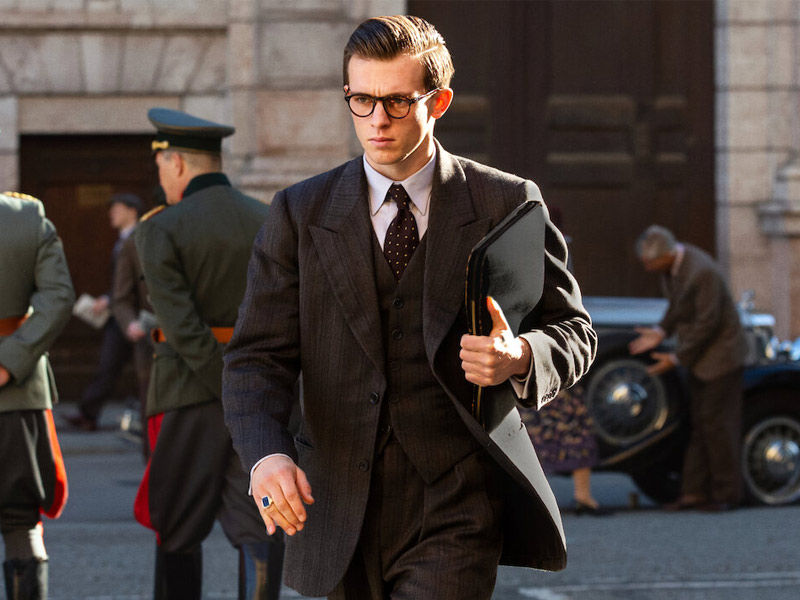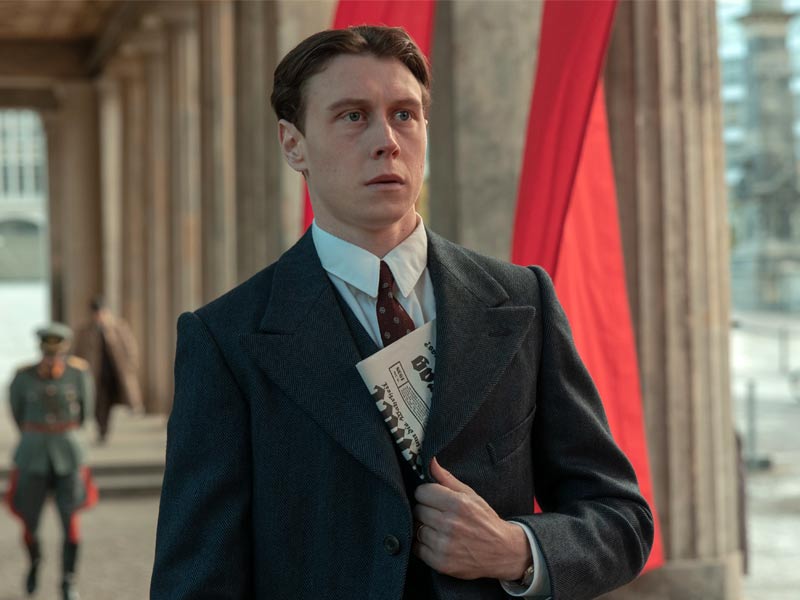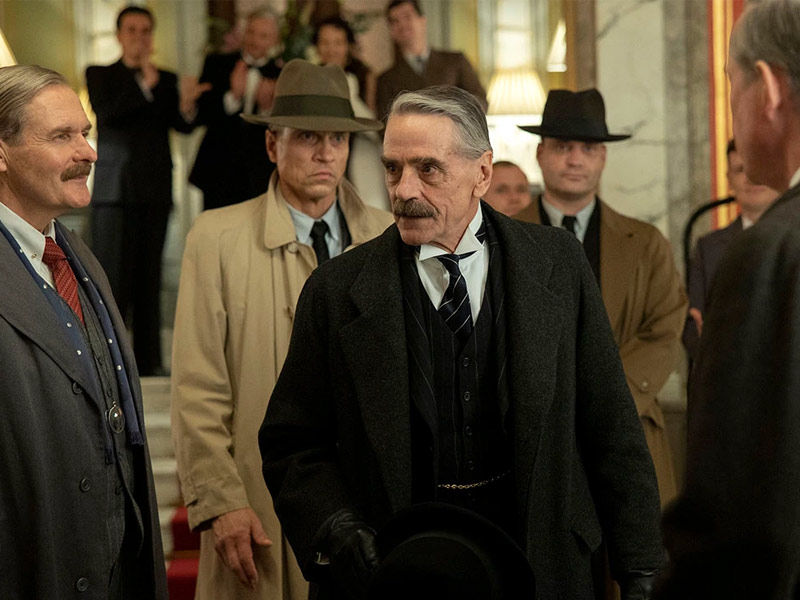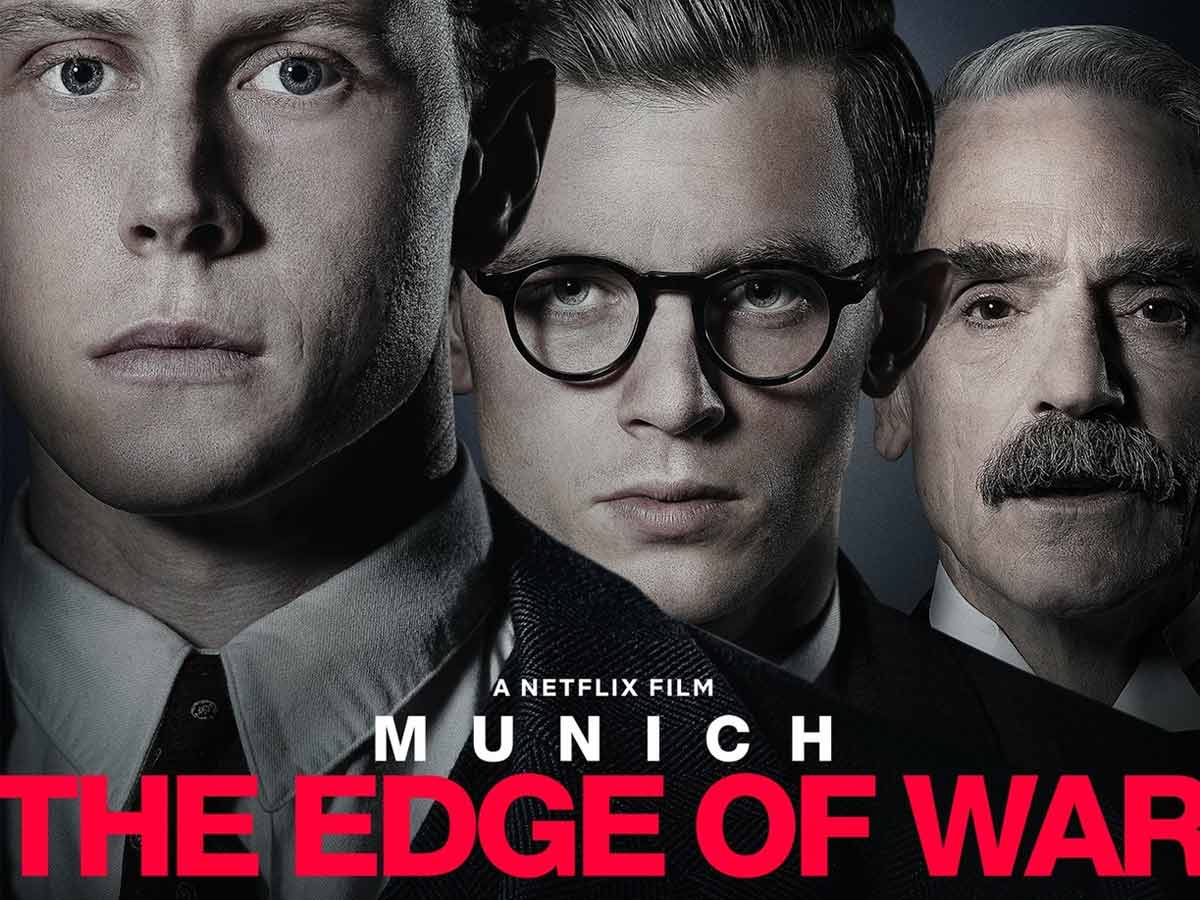Disclaimer: The following article may contain spoilers for the movie “Munich: The Edge of War”.
‘Munich: The Edge of War’ is a British film directed by Christian Schwochow, set in the years and months leading up to the Munich Agreement on 30 September, 1938. The film, in addition, is an adaptation of the historical-fiction novel of the same name by Robert Harris. The age-old debate of whether the book is better than the movie could use this film as evidence for why movies have a harder time developing satisfactory character arcs.

The characters of this film suffer, to a large extent, because of a lack of proper character arcs. We stumble upon them, we learn about what they’re doing and then we leave them be. They, for sure, are benefited by the performances of the actors though. Jeremy Irons and co. enliven the flaccid dialogues to the best of their abilities and try to bring about a certain humanity that the script unfortunately lacks.
It does try to establish some humanity to the lead characters by giving them an individual backstory. Hugh, for instance, can be seen going through a bit of a personal familial crisis; but it doesn’t quite work because the point of difference between the him and his wife and arguments made by her, Pamela (played by Jessica Brown Findley), seem very unnecessary, unreasonable and not something anyone with common sense would say.
Another reason for the lack of humanity in the film might be that the film doesn’t do a good job at clearly establishing the stakes. It banks upon our knowledge of the history of the world war. Obviously, every person who has read even a little bit about world history would know what had transpired during the second World War. But the public of today, whom this movie is probably realistically catering to, has a bit of an impersonal account of the history of the world and it was the job of the movie to help us understand the true dread surrounding the War that took place.

It could have done a good job in helping us understand if it had allowed us to connect to a character or a people for whom we could have felt a dreaded trepidation.
The two leads of the film are young non-Jewish men that wield the fate of the Jews and most of Europe in their anxious hands. Obviously, it isn’t necessary that the protagonists of a movie centered around Nazi Germany need to be Jewish; but a movie that attempts to build tension in the name of trying to prevent a humanitarian crisis needs to make the audience connect with the people that would be affected. Regrettably, this film doesn’t quite succeed in establishing that connection. The few Jewish characters it has, the most prominent of them being Lena (played by Liv Lisa Fries), are severely underdeveloped with almost no screen presence at all.
Also Read, Moonfall: Not the Best, But surely turned the Tide
The film would probably have gained from establishing Lena as a more sympathetic character whose eventual inevitable demise would have helped create some tension and would have given weight to the lead characters’ attempts at thwarting Hitler’s advancements.
The dialogues of the film are quite generic and bland but are significantly helped, at least in the case of Jeremy Irons and Jannis Niewohner, by the articulate British and German dictions. Anything the British and the Germans say, even if bland and horrible, sounds pleasant. But the quality of the writing has to be especially bad if, even after being blanketed by the lovely British and German dictions, one notices its dissonance.

The use of plain words by such important figures of history as Neville Chamberlain and the leaders of the Axis powers made the magnitude of the events seem rather trivial. The plotting of the film could have used a little refinement as well. The twists seemed contrived instead of earned, shoehorned instead of natural.
Nevertheless, the movie had enough positives to keep an audience engaged, albeit in a rather weary manner, throughout its runtime. The acting was simply superb. Jeremy Irons as Neville Chamberlain, George Mackay as Hugh Legat, Jannis Niewohner as Paul von Hartmann and Ulrich Matthes as Adolf Hitler gave incredibly memorable performances. Ullrich Matthes, in particular, stole every scene he was in. The nuances of his acting shone a brilliant light on Hitler’s God complex and power-hungry nature.
It was a sight to behold. Perhaps it was just me but I found the choice of casting such a frail looking Hitler rather peculiar. Hitler has always been portrayed as a very open chested man in the past; so it was very interesting to see how even if the physical qualities we generally attribute to Hitler were altered, his ideology and nature was such that he would still be as unlikable and grotesque.
The cinematography of the film was very engaging as well – it had a certain quality of impending doom to it and the muted colors complemented the gray happenings in the movie. The dreary atmosphere enhanced every scene and brought a tension, which the plot and dialogues were not as successful in accomplishing.

Overall, Munich: The Edge of War is a decent historical drama that does just enough to keep you hooked if you’re a fan of historical dramas but unfortunately, even then, you probably wouldn’t watch it more than once.





























